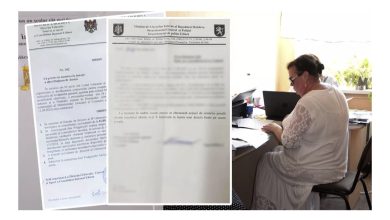The New Draft Law on Access to Information Voted by the Parliament in the First Reading

The new draft law on access to information was voted by the deputies in the first reading. Among other things, the document stipulates eliminating the obligation to sign requests for access to information and reducing the deadline for responding to requests. On the other hand, media experts and journalists have previously paid attention to a series of loopholes, and several NGOs launched a public appeal calling for more extensive consultations on the parliamentary platform.
The new draft law on access to information started being prepared in early 2022. This document, among other things, provides a definition of information of public interest as all information held by information providers, which it lists. It stipulates that any natural or legal person shall have the right to have access to information of public interest, “without absolutely any discrimination”; methods for accessing information, provisions for limiting access, procedures for requests for access to information or rules on personal data, etc. are listed.
According to the initiative, signing requests will no longer be obligatory, and the deadline for responding to requests will amount to 15 calendar days. Unlike the current law, the new draft includes a chapter on proactive transparency, which implies that the authorities could be obliged to publish a series of information related to their activity ex officio, on their official web pages. Besides, access to information of public interest could be limited in order to protect one of the legitimate purposes related to the following areas: national defense or security, public order or safety, preventing or detecting crimes or contraventions, criminal prosecution, personal data, trade secret, intellectual property and rights, environment, etc. The legislative initiative also includes the prohibition to limit access to information of public interest which represents personal data on public agents’ professional activity, such as last name, first name, position, studies, professional experience, unspent disciplinary sanctions, or salary.
In February, Media Azi wrote about the fact that, according to some experts and lawyers, the text contained a number of loopholes. These concerns remained valid after the Cabinet of Ministers approved the draft law.
The appeal launched on April 13 by a number of non-governmental organizations refers to a restrictive definition of public information, introducing exceptions which make the criterion of proportionality inapplicable to limiting access to information, the lack of clear criteria for quality and format for proactive publication of information, as well as that of an efficient mechanism for monitoring and implementing the law, and extremely long terms for accessing information, especially for journalists. The signatories addressed the legislative authority demanding to organize wide-scale and representative consultations on the draft law.
The document will be examined in the second reading at the plenary session of the Parliament.




